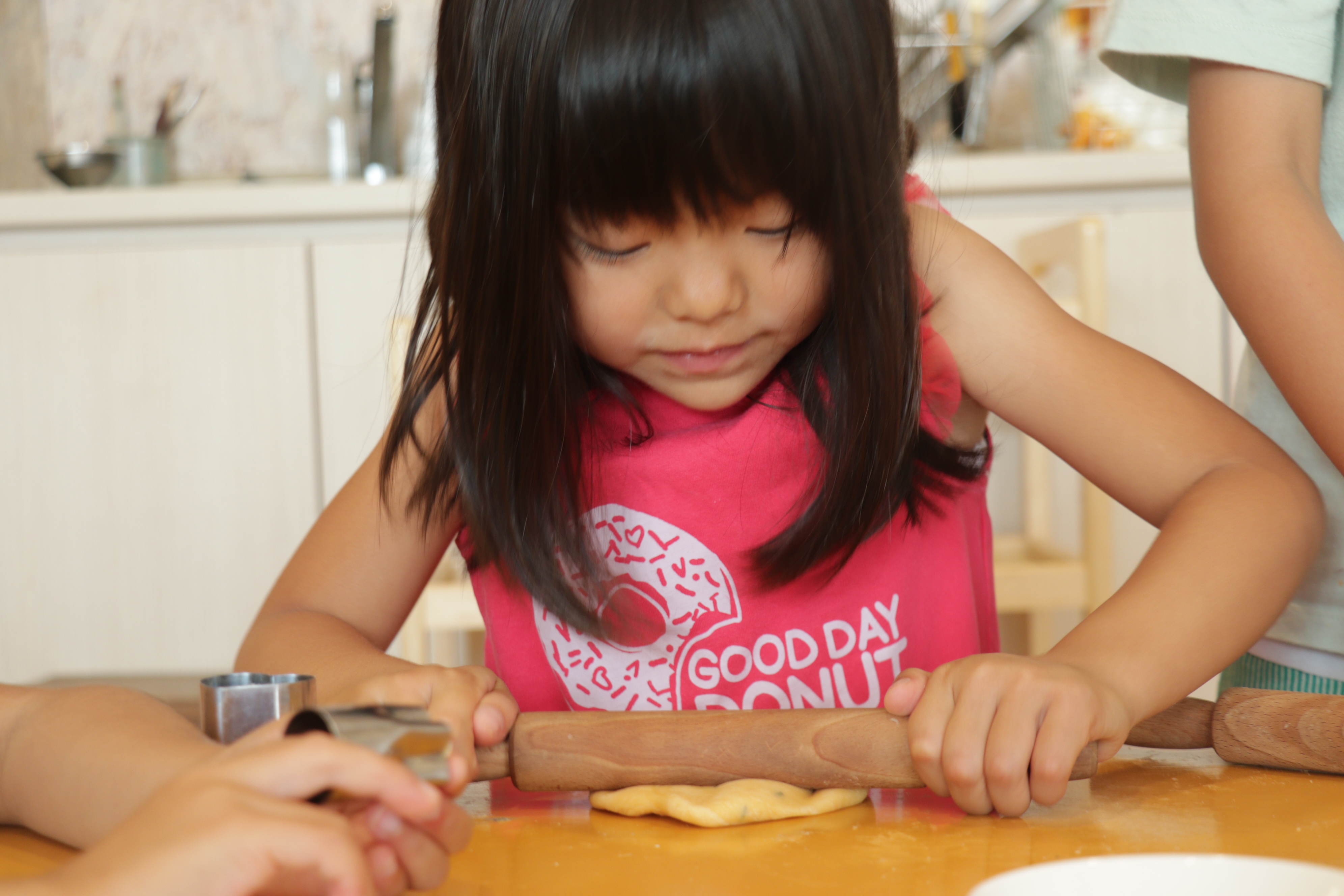
2021.07.01 “Encounter With Food”
Text : Saeko Imai
At the beginning of July, we had our first camp meeting with the children who would be attending the camp, namely the Akebi class elders. This year ’s elders were very enthusiastic about the camp because they had seen how confident their seniors were after the camp in the year before.
First we asked ourselves, ”What do we call ourselves? What should we name our team?” R-kun replied, ”I want it to be the lemon juice team!”. H-chan said, ”I like the melon team”. While it was hard to decide for everyone, K-chan got an idea when R-kun said, ”I’m so hungry, I can ’t think of anything.” Then K-chan said, ”How about Team ’Empty (Karappo) ’” ? And everyone made a face as if it said, ”Oh, that ’s it!” After a majority vote, the empty team was chosen by an overwhelming majority. The children of Karappo team are always so curious about food and cooking, as if their stomachs are always empty.
The next item on the agenda was, ”What do we eat at camp?” On the condition that the children would gather their own ingredients and make their own food, their answers were surprising. ”Salt””Soy sauce!” ”Miso!” and the names of ingredients such as ”Tomato” and ”Eggplant”. I was surprised to see the dishes broken down into ingredients because I had expected to see the names of dishes like ”Hamburger steak” and ”Miso soup”.
However, the idea makes sense when you see them at Yamanoko. The longest ones would stand in Akebi ’s small kitchen for hours, using tools to cook with whatever was growing in the garden or the vegetables of the day, wondering, ”What would this taste like if I cooked it?” For them, cooking is not an act of eating a finished product, but rather something original that is created when ingredients react with each other. This is the beginning of their exploration of ”food,” gathering and cooking ingredients on their own!
The Birth of ”Oshiri Shio (butt salt)”
I asked the children, ”What is salt made of? ”The answer came back, ”Isn ’t it sea water? ”Then we have to go to the sea and get it!”, they said. The members of Karappo went to the beach with their families on the weekend and collected seawater. They looked at the seawater and wondered, ”How can this water be turned into salt?
But when S-kun licked the seawater, he said, ”It tastes like salt!”. M-chan looked at the seawater boiling in the pot and said, ”The water is running out. Where does the water go when it ’s gone?”
While we were waiting, the children talked about the fun times they had with their families at the beach over the weekend, and everyone’s attention turned to the ocean, saying, ”There were beautiful fish there.” I feel that the ocean is a big part of the Akebi children’s lives. The musical Under the Sea, which was held in February this year, is still fresh in the children’s minds, and everyone in Karappo had a strong desire to go to the ocean for camp from the beginning. . Although the ocean means different things to each of them, they seem to have a common understanding that something wonderful is waiting for them when they go there. It was very beautiful to see the children exploring the ”taste” of the ocean.
As the water was reduced, what came out was a thick white powdery substance that stuck to the pot. ”Isn ’t that salt!?” They scraped it off with a spoon. They licked it. ”It ’s salty!” The whitish powder increased as the water got less and less. ”Salt! It ’s salt! ’ ’children shouted. We were able to get a lot of salt out of a 500ml plastic bottle alone. When we licked the salt, we found that it was a little bitter, but also sweet and had a strong presence. When the children and I compared it to salt sold in stores, they were confident that ”Our salt tastes better! ”Hey, let ’s name it ”Oshiri Shio (butt salt).
It reads the same when read from the bottom or the top!” ”The name of Akebi ’s first salt was decided.
The mystery of how the plentiful water turned into a white powder and the delicious taste of the salt led the children to bring a lot of seawater to make salt to use in their daily cooking.
Getting the Vegetables
The Karappo team was worried about not being able to get enough vegetables from the garden at Yamanoko but Anna said, ”But there are lots of black berries at my house! Shall I bring some?” R-kun said, ”My grandpa makes lots of dadacha edamame at home! I ’m sure he ’ll tell us we can come and get them.” We started observing what was growing around us. So we decided to ask families who have vegetable gardens or farms to bring us vegetables.
Also, in order to experience the richness of the local area, we visited the fields of ”Naa”, a farmer who delivers vegetables to Yamanoko, and harvested eggplants, cucumbers, watermelons, and corn. The children ’s eyes lit up when they saw so many vegetables spread out before them. The cucumbers were made into lightly pickled vegetables, the eggplant into curry, and the corn into soup.
Afterwards, we visited the field of the Yamagata Design Agriculture Project and harvested a lot of medium-sized tomatoes. The children ’s hearts seemed to soar when they came back and saw the vegetables lined up all over the table. S-kun made a rich tomato sauce with the bell-shaped tomatoes.
The Quest for Pasta
In the Karappo meeting held in the second week of July, we heard someone say, ”I want to eat pasta at camp. ”When I asked, ”How do you make pasta?” They replied, ”It’s easy! Just boil the noodles in hot water and toss them in the sauce,” one replied. ”That’s just boiling the finished noodles, right? I thought we were talking about making our own ingredients as much as possible at camp.” I replied, ”….” And the silence spread. ”I think it’s flour and water,” M-kun said. ”The staff asked, ”Shall we look it up at home then?.”
The next week, R-kun brought in a very nice recipe book that he had made with his mother. The other children faithfully followed the ingredients and recipe that R-kun had researched. They mixed the flour, water, and eggs together, and mixed it with their hands, saying it was like clay. When the dough was too hard or too soft, they made their own dough by adding water and flour as if they were experimenting.
The result was a dough that was firm and sturdy. The pasta that is in the store is long and thin, but the children cut out shapes with cookie molds, boiled it, and fried it with olive oil and salt. The result was ”hard, but delicious”!. That day we ate a lot of pasta together under the pavilion in the mountains.
The same method was used for the actual event, but this time Y-kun, S-kun, and K-chan made thin pasta cut with a knife. It was also ”hard but delicious! Add to that the tomato sauce made by S-kun and Ai-san, and it was absolutely delicious!
Just as every dish is a combination of ”ingredients” and ”process,” the Karappo team’s camp meal was also a combination of fun processes. The scenery of the sea where the family went to collect seawater, the smell of salt being made in a pot, and the sight of vegetable fields spreading out in front of them were all engraved in the children’s minds as part of the Karappo Camp food project. I believe that what we make with our own hands, using all five senses, will remain in the children ’s minds somewhere. Thank you to all the parents who cooperated with the food project, Naa and Yamagata Design Agriculture Project! Thanks to you, our food journey with the children has been a rich one.














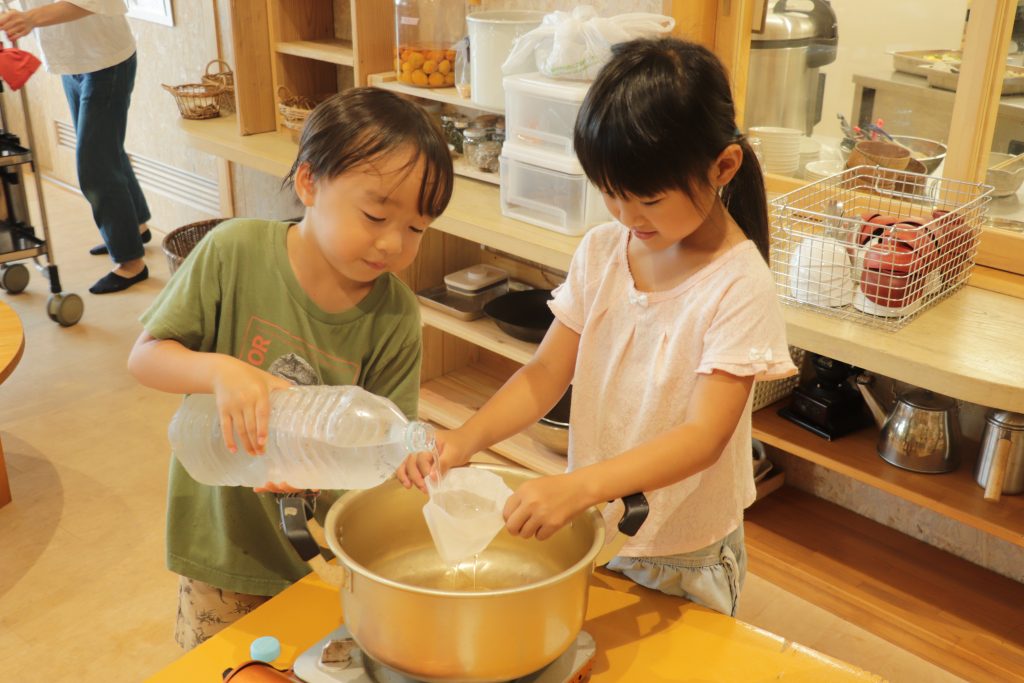
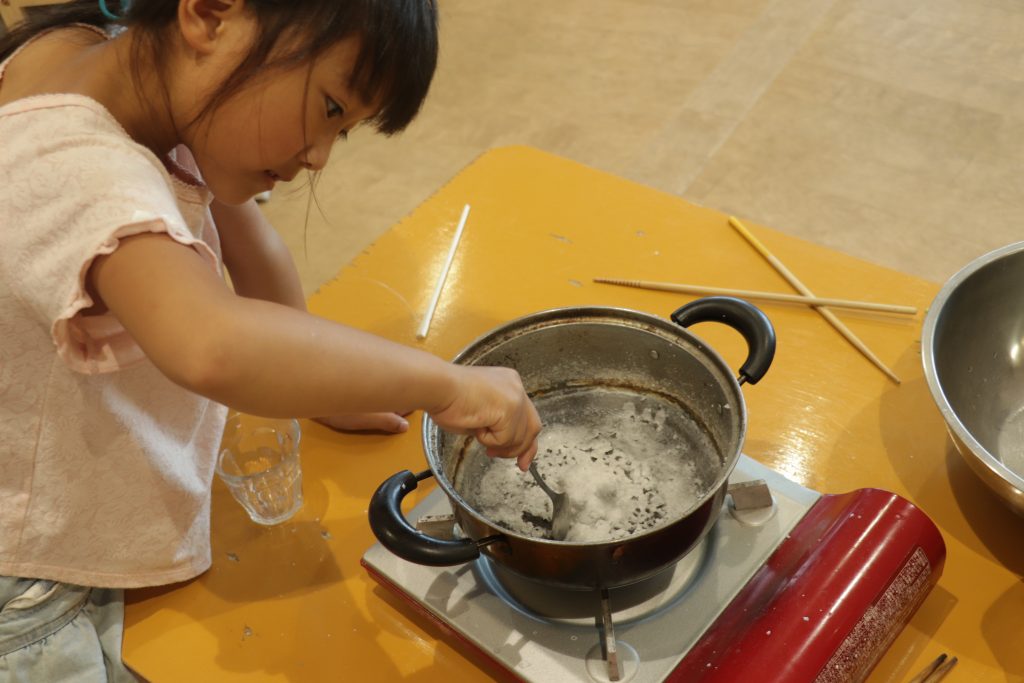
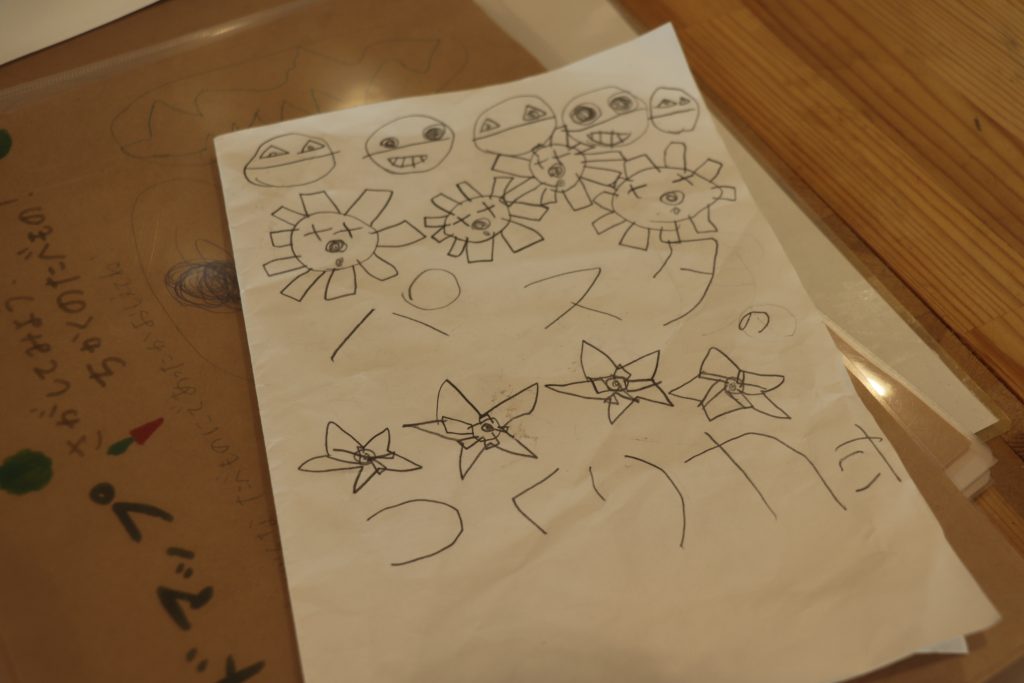
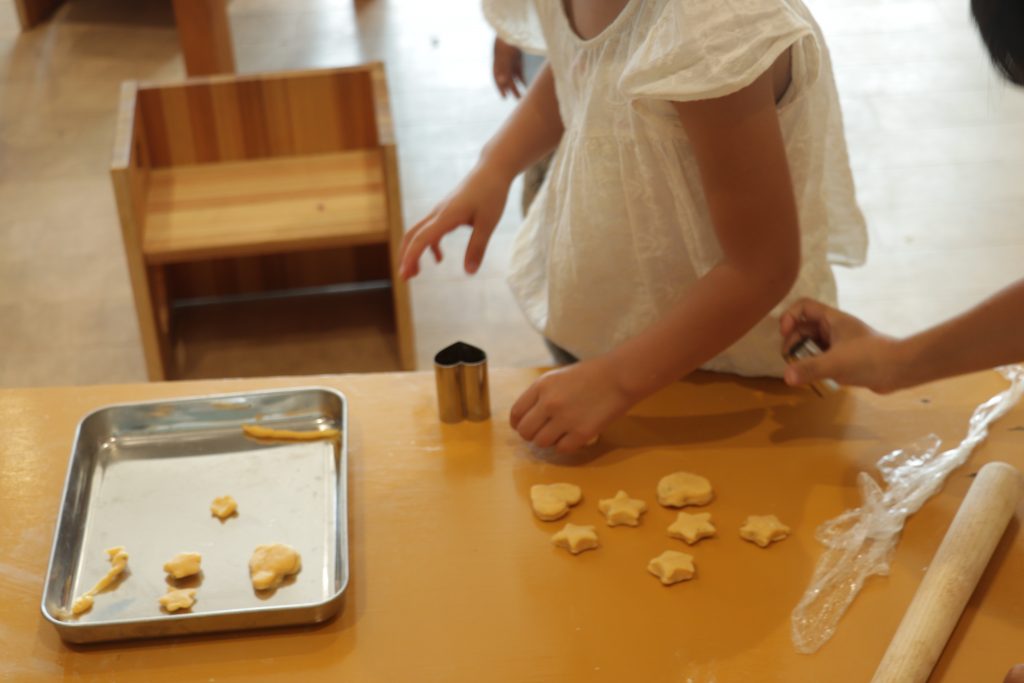
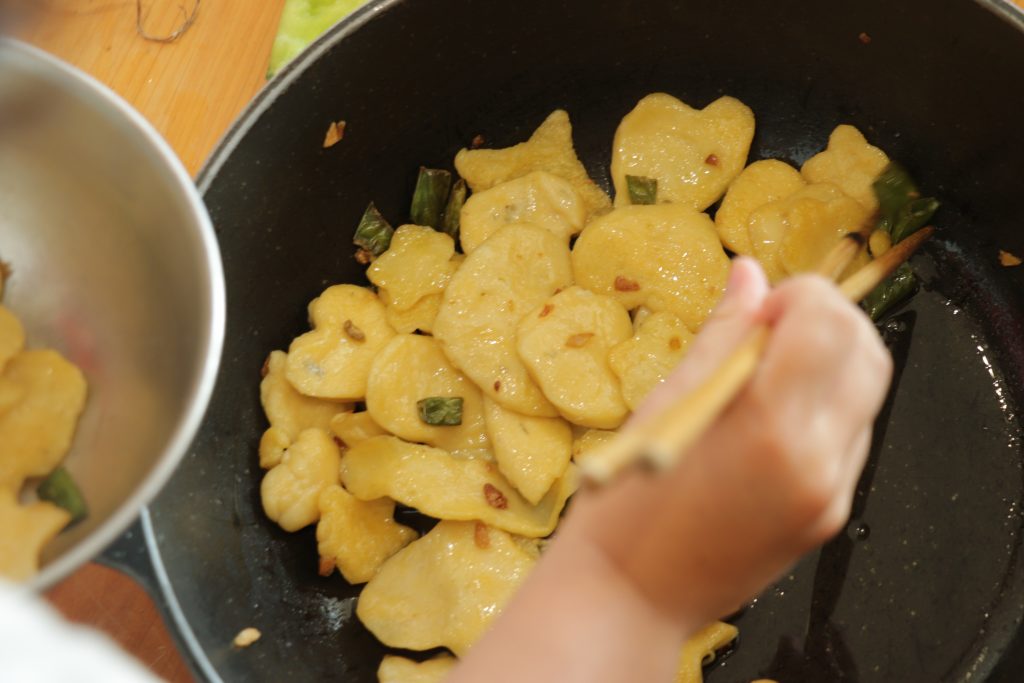
 PREV
PREV